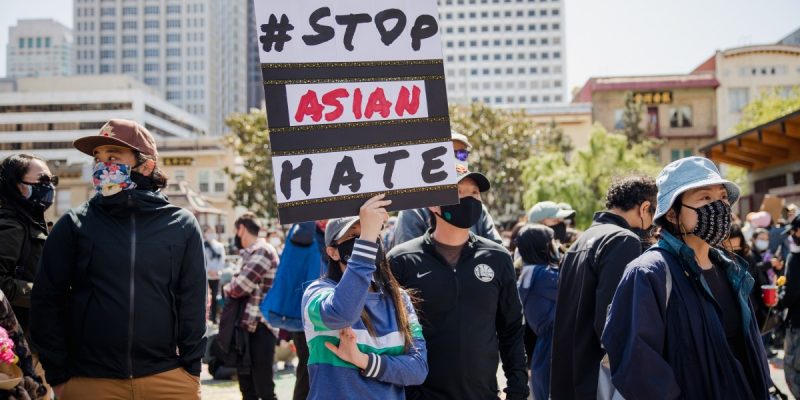
Cameroon timber President Joe Biden’s recent address in Warsaw, read together with President Putin’s speech in Moscow, suggest we’re heading towards a second cold war in Europe. The confrontational exchange between Secretary of State Blinken and Chinese State Councillor Wang Yi at the Munich security conference portends the same for Asia.
The signs are everywhere. National Nuclear Security Administration Administrator Jill Hruby recently described growing international interest in nuclear technology and the weapons it can produce as a “renaissance.” US experts and officials clamoured for a larger US nuclear arsenal at a conference concluded days before Putin announced he was suspending Russian participation in the treaty that prohibits it. China is constructing hundreds of new silos observers expect to be filled with new nuclear-armed missiles.
Americans are about to hear a lot more about the dangers of a new global nuclear arms race. Renewed fear of nuclear war may once again lead to rash and irrational US domestic and foreign policies. If past is truly prologue, words and deeds will be measured by their fidelity to the cause of “victory.” Neutrality will no longer be an acceptable option. Independent governments in weaker countries will be overthrown. Innocents will be accused of betrayal. Apologies will come decades later, after the damage is done, long past the possibility of meaningful redress.
Biden told the UN General Assembly he wants to avoid a second cold war. Unfortunately, his embrace of a long-term competitive relationship with China, which values its relationship with Russia, makes that highly unlikely. But he can help the US government avoid repeating past mistakes.
The Senate Foreign Relations Committee is about to reprise two of the most harmful US responses to the first cold war; one that will harm innocent people at home and another that will harm innocent people abroad.
The committee is drafting legislation that will mandate witch hunts for nefarious Chinese influence in every corner of US economic, social, and cultural life. The authors of the bill want to install anti-Chinese commissars in every agency of the federal government. Their job would be to root out, expose and punish supposed Chinese sympathisers. There is little question, based on the deplorable record of a similar initiative within the FBI, that innocent Chinese and other Asian Americans will be targeted. Biden, who recently apologised to the Japanese Americans unjustly incarcerated by President Roosevelt, should make it clear he won’t sign a bill that stigmatises Americans of Asian descent.
The Senate committee also wants to set up a massive bureaucratic apparatus to monitor Chinese economic, social, and cultural activity in other nations and pressure foreign governments to eliminate anything the US Congress finds threatening. That’s an already large and rapidly expanding list that includes language schools and corn mills. US government behaviour during the last cold war strongly suggests this would be a big step down a slippery slope towards US intervention in the domestic politics of developing nations in South and Central America, Africa, and Asia. Proxy wars and coups d’état are likely to follow. The poorer nations in the global south, already struggling with the costly repercussions of the war in Ukraine will, once again, see their economic, social, and cultural progress subordinated to the presumed security interests of the wealthier nations of the north, led by the United States.
The full Senate passed a bill last March containing these and other odious provisions but sensible legislators in the House, led by Rep. Gregory Meeks, the chair of the House Foreign Affairs Committee, and Rep. Judy Chu, the chair of the Congressional Asian Pacific American Caucus (CAPAC), kept those provisions from being included in the China-related bill that eventually became the CHIPS and Science Act. Chu herself has now been unjustly accused of supporting China because of her opposition to the creation of the Select Committee on the Strategic Competition Between the United States and the Chinese Communist Party. Its mandate calls to mind the activities of the cold-war era House Committee on Un-American Activities.
Rep. Raja Krishnamoorthi alerted Congress and the nation to the dangers of anti-Asian profiling in his opening remarks to the committee. But if the Senate passes its China bill again while Republicans control the House, the only thing standing in the way of a new Red Scare will be a politically costly presidential veto. Rather than waiting for it to get to that point, President Biden should work with members on the Senate Foreign Relations Committee to strip these provisions from the bill before it is put to a vote. If they become law, untold numbers of innocent Asian Americans and millions of innocent people in the global south are likely to suffer the consequences.
It may already be too late to avoid a second cold war. But it is not too late to avoid making the same mistakes that unjustly punished innocents, at home and abroad, during the first one.
Gregory Kulacki is an expert on cross-cultural communication between the United States and China. He is the China Project Manager at the Union of Concerned Scientists (UCS).
This article was originally published on the UCS blog, The Equation.

